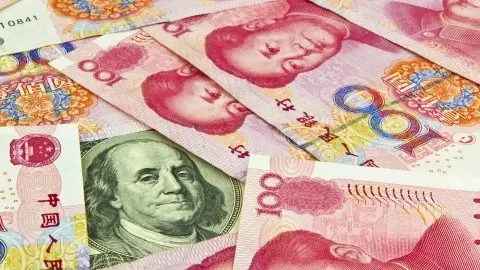Why we’re not worried about the Hong Kong dollar peg
There's been increasing speculation about Hong Kong's dollar peg, mainly because protests have lasted longer than expected. Here's why we don't think the monetary authority will change the linked exchange rate system or the currency range. We also include our views on HKD interest rates
We don't think the HKD peg will change
Due to the prolonged protests, investors have started to worry about Hong Kong's dollar peg.
The HKD is governed by a linked exchange rate system, which is written into the Basic Law of the Hong Kong Special Administrative Region. What can be changed is the linked currency, which is now the US dollar, and the range of the linked exchange rate level.
The HKD is freely traded internationally, which is important for China to do businesses with the rest of the world.
We expect the Hong Kong Monetary Authority (HKMA) to stick to the existing linked exchange rate system, now more than ever.
What is the linked exchange rate system?
The linked exchange rate system permits the HKD to range between 7.75 and 7.85 per USD. That is the range set by the Hong Kong Monetary Authority.
The HKMA does not have a policy interest rate. The interest rate of Hong Kong SAR is driven by the money flowing in and out.
In theory, when demand for HK dollar assets falls and the HKD weakens to 7.85, the HKMA should purchase HKD, leading to a fall of HKD liquidity in the system. Interest rates then rise versus the US dollar, which should attract capital inflows and keep the exchange rate between 7.75 and 7.85.
What can be changed in the linked exchange rate system?
Two variables in the linked exchange rate system can be changed. One is the linked currency, which is now the dollar, and the second is the band of the linked exchange rate system.
During times of high volatility or uncertainty in the asset market, changes to the linked exchange rate system, be it the linked currency or the band, could trigger speculation about further changes. This would create a lot of betting on USD/HKD and could hurt the HKMA's credibility. As such, it is not an appropriate policy action at this time, particularly because it would do nothing to address the demands of protestors.
HKMA has enough exchange funds to defend the peg via market channels, i.e. spot and derivatives, and it has experience in defending the peg successfully, as seen in the Asian financial crisis.
Interest rates in Hong Kong are tied to cross border fund flows
Interest rates in Hong Kong theoretically follow the mechanism of the linked exchange rate. But within the framework, there are other factors affecting the level of interest rates.
The most prominent one is cross border fund flows in and out of the Hong Kong equity market. This is obvious when there are hot IPO listings in Hong Kong SAR because IPO margin financing usually locks up a lot of cash, and therefore pushes up interest rates.
Other factors include the relative movements of HKD interest rates vis-a-vis the USD interest rate, as the linked currency is the dollar.
Forecasts of HKD and interest rate
We expect the HKD to fall from the current 7.84 level to 7.82 by end of 2019 as we expect some mega sized IPOs to be listed in Hong Kong SAR in the second half of the year.
For the same reason, we expect the three-month HIBOR to increase from 2.35 to 2.55 by end of 2019.
This publication has been prepared by ING solely for information purposes irrespective of a particular user's means, financial situation or investment objectives. The information does not constitute investment recommendation, and nor is it investment, legal or tax advice or an offer or solicitation to purchase or sell any financial instrument. Read more
Download
Download article
22 August 2019
What’s happening in Australia and around the world? This bundle contains 11 Articles
